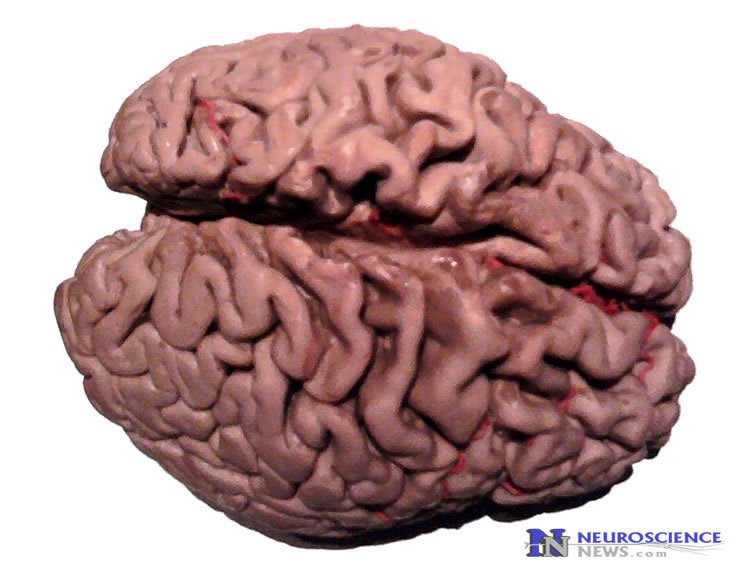Older people with higher amounts of a key protein in their brains also had slower decline in their memory and thinking abilities than people with lower amounts of protein from the gene called brain-derived neurotrophic factor, or BDNF, according to a study published in the Jan. 27, 2016, online issue of Neurology.
“This relationship was strongest among the people with the most signs of Alzheimer’s disease pathology in their brains,” said study author Aron S. Buchman, MD, of Rush University Medical Center in Chicago and a member of the American Academy of Neurology. “This suggests that a higher level of protein from BDNF gene expression may provide a buffer, or reserve, for the brain and protect it against the effects of the plaques and tangles that form in the brain as a part of Alzheimer’s disease.”
For the study, 535 people with an average age of 81 were followed until death, for an average of six years. They took yearly tests of their thinking and memory skills, and after death, a neurologist reviewed their records and determined whether they had dementia, some memory and thinking problems called mild cognitive impairment or no thinking and memory problems. Autopsies were conducted on their brains after death, and the amount of protein from BDNF gene expression in the brain was then measured. The participants were part of the Rush Memory and Aging Project and the Religious Orders Study.
The rate of cognitive decline was about 50 percent slower for those in the highest 10 percent of protein from BDNF gene expression compared to the lowest 10 percent. The effect of plaques and tangles in the brain on cognitive decline was reduced for people with high levels of BDNF. In the people with the highest amount of Alzheimer’s disease hallmarks in their brains, cognitive decline was about 40 percent slower for people with the highest amount of protein from BDNF gene expression compared to those with the lowest amount.
On average, thinking and memory skills declined by about 0.10 units per year on the tests. Higher levels of protein from BDNF gene expression reduced the effect of plaques and tangles in the brain on cognitive decline by 0.02 units per year.
The researchers found that the plaques and tangles in the brain accounted for 27 percent of the variation in cognitive decline, demographics accounted for 3 percent and BDNF accounted for 2 percent.

Michal Schnaider Beeri, PhD, of the Icahn School of Medicine at Mount Sinai in New York, noted in an accompanying editorial that exercise has been shown to increase levels of BDNF in the blood, but that the relationship between BDNF protein levels in the blood and in the brain is not clear.
“More research is needed to confirm these findings, determine how this relationship between protein produced by BDNF gene expression and cognitive decline works and see if any strategies can be used to increase BDNF in the brain to protect or slow the rate of cognitive decline,” said Buchman.
Buchman noted that the study does not prove that BDNF is the cause of a slower rate of cognitive decline; further work is needed to determine if activities which increase brain BDNF gene expression levels protect or slow the rate of cognitive decline in old age.
Funding: The study was supported by the National Institutes of Health, Illinois Department of Public Health and the Robert C. Borwell Endowment Fund.
Source: Rachel Seroka – AAN
Image Credit: The image is in the public domain
Original Research: Abstract for “Higher brain BDNF gene expression is associated with slower cognitive decline in older adults” by Aron S. Buchman, Lei Yu, Patricia A. Boyle, Julie A. Schneider, Philip L. De Jager, and David A. Bennett in Neurology. Published online January 27 2016 doi:10.1212/WNL.0000000000002387 1526-632X
Abstract
Higher brain BDNF gene expression is associated with slower cognitive decline in older adults
Objectives: We tested whether brain-derived neurotrophic factor (BDNF) gene expression levels are associated with cognitive decline in older adults.
Methods: Five hundred thirty-five older participants underwent annual cognitive assessments and brain autopsy at death. BDNF gene expression was measured in the dorsolateral prefrontal cortex. Linear mixed models were used to examine whether BDNF expression was associated with cognitive decline adjusting for age, sex, and education. An interaction term was added to determine whether this association varied with clinical diagnosis proximate to death (no cognitive impairment, mild cognitive impairment, or dementia). Finally, we examined the extent to which the association of Alzheimer disease (AD) pathology with cognitive decline varied by BDNF expression.
Results: Higher brain BDNF expression was associated with slower cognitive decline (p < 0.001); cognitive decline was about 50% slower with the 90th percentile BDNF expression vs 10th. This association was strongest in individuals with dementia. The level of BDNF expression was lower in individuals with pathologic AD (p = 0.006), but was not associated with macroscopic infarcts, Lewy body disease, or hippocampal sclerosis. BDNF expression remained associated with cognitive decline in a model adjusting for age, sex, education, and neuropathologies (p < 0.001). Furthermore, the effect of AD pathology on cognitive decline varied by BDNF expression such that the effect was strongest for high levels of AD pathology (p = 0.015); thus, in individuals with high AD pathology (90th percentile), cognitive decline was about 40% slower with the 90th percentile BDNF expression vs 10th.
Conclusions: Higher brain BDNF expression is associated with slower cognitive decline and may also reduce the deleterious effects of AD pathology on cognitive decline.
“Higher brain BDNF gene expression is associated with slower cognitive decline in older adults” by Aron S. Buchman, Lei Yu, Patricia A. Boyle, Julie A. Schneider, Philip L. De Jager, and David A. Bennett in Neurology. Published online January 27 2016 doi:10.1212/WNL.0000000000002387 1526-632X






